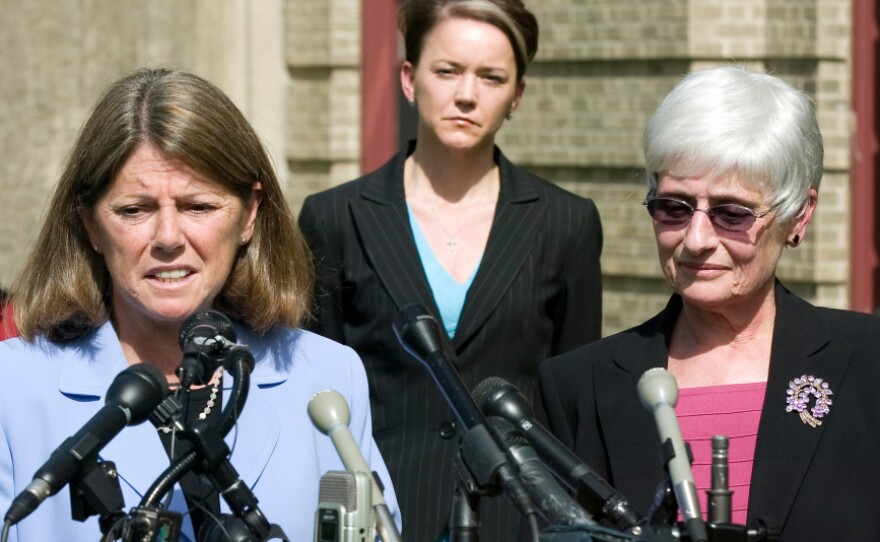For the last year, Central Falls High School in Rhode Island has been under a microscope. Long considered one of the poorest-performing high schools in the state, administrators abandoned a proposal to fire all the teachers as long as they agreed to a so-called "transformation" plan.
Now, as the school year winds down, that plan is in shambles.
Since August, when the restructuring of Central Falls High School began, 26 teachers have resigned or been fired. Josh Karten is one of them.
"I think I've been let go because I'm not a true believer," Karten says.
Karten, a history and business teacher for four years here, says he was all for the school's transformation — which called for a much tougher teacher evaluation policy, mandatory training and more time dedicated to struggling students. The plan and the money to pay for it came from the Obama administration's campaign to fix schools labeled "dropout factories."
Karten's enthusiasm took a dive after he was put in charge of the "restoration" room, a holding pen for the school's most disruptive students.
"But then once I started questioning some of the things they were doing — putting kids in a room just to get them out of the way for the period and then putting them back out. And they basically kept telling me to shut my mouth and just log people when they come in. I never got to teach," Karten said.
Karten says the school was in such disarray that in-school suspensions jumped from 2,300 to 8,500 by the end of May. His contract was not renewed because, he says, he had seen too much and refused to be muzzled.
Not true, says Superintendent Frances Gallo, although she declined to discuss Karten's firing.
"Personnel matters are personnel matters, but shame on us if we didn't have enough planning with Josh so that he understood the role and knew what had to be done," Gallo says.
Placing Blame
The debacle at Central Falls High has gotten national attention because President Obama and Secretary of Education Arne Duncan have publicly sided with administrators arguing that teachers must be held accountable for students' dismal test scores. Last year, only 7 percent of students tested at grade level in math, 24 percent in reading. This year's test results could be worse. Why?
"Because of our low expectations in the classroom — meaning teachers," Gallo says.
Gallo believes some teachers have sabotaged her reforms. Teachers say those reforms are a joke. Joe Travers, a 21-year veteran, was transferred to an elementary school after saying so at a town hall meeting.
"I'm fighting this because what they did is wrong. They use that word transformation as a buzzword for everything: 'We can do this because of transformation.' But transformation tries to retain the teachers that are doing a good job, tries to retain teachers that can move the school forward," Travers says.
Instead, says Travers, the absolute lack of trust in Gallo and administrators has made it impossible to move forward. Rhode Island's Education Commissioner Deborah Gist agrees.
"If people are not working together, there's no chance for its success," Gist says.
With teachers and administrators at an impasse, Gist, too, has come under fire for failing to bring both sides together.
"I am ultimately responsible for getting that done," Gist says.
Gist says the school could eventually be shut down or turned into a charter school. State legislators are calling for an investigation into how the $1 million in federal funds for the school's transformation have been spent and whether the school district violated the due process rights of teachers.
Feeling Cheated
No one has been hurt more by the upheaval at Central Falls High than this year's seniors. "I think most of us do feel cheated for the four years. Every year has been different and this year has by far been the worst," senior Derrick Lopes says.
"Like they let all the bad kids do whatever they want. It's just kind of pathetic," his classmate, Ashley Castro, says.
And so, as the Obama administration considers how to turn failing schools around, Central Falls High has become a cautionary tale about the complexities of school reform and whether the federal government should be dictating what those reforms should be.
Copyright 2022 NPR. To see more, visit https://www.npr.org. 9(MDAzMjM2NDYzMDEyMzc1Njk5NjAxNzY3OQ001))






